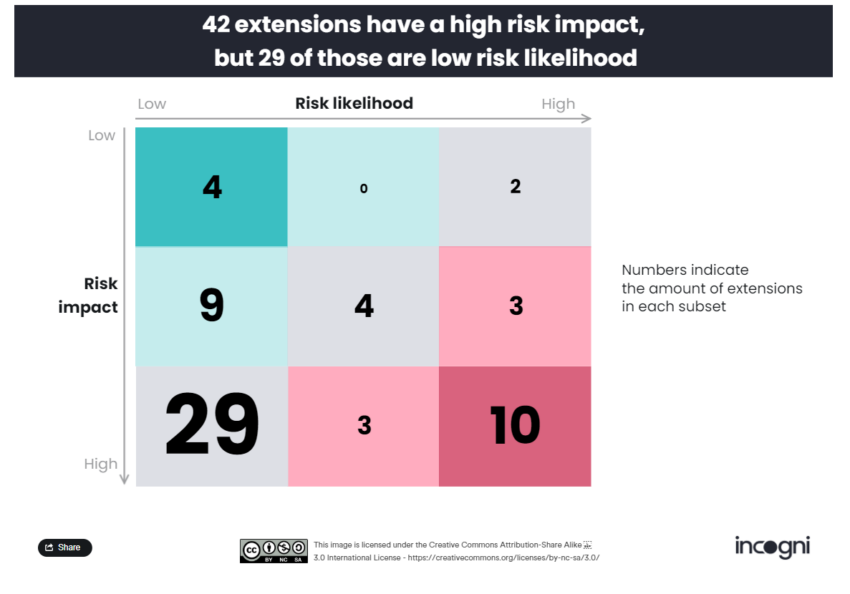Google Chrome extensions are one of the most convenient ways to augment your browsing experience. However, a new study by Incogni has raised serious concerns for users. Particularly those who have downloaded and installed one of the many artificial intelligence-powered apps now on offer.
According to Incogni, whose researchers examined the risk metrics, permission requirements, and data collection practices of 70 AI-powered extensions, there is plenty to be worried about. Perhaps most worryingly for crypto owners, 15 out of 70 (21%) extensions collect user data like network monitoring and mouse position or keystroke logging.
Of course, any keystroke logging presents the risk that malicious actors can access your private keys, and therefore your funds.
Chrome Extensions Have a High “Risk Impact”
Their findings show that 69% of extensions investigated have a high “risk impact.” Meaning that they require a high degree of permissions to function. This can be particularly dangerous if these apps are developed or hijacked by malign actors. Furthermore, of the 10 AI-powered writing extensions, all had a high risk impact.
The investigated extensions require 3.7 permissions on average. According to their findings, personal assistants ask for the greatest number of permissions. 59% of analyzed extensions collect user data, and 44% of investigated extensions collect personally identifiable information.
Extensions’ risk impact is gauged by their permission levels. Those with limited impact can’t cause much harm, even if misused. Conversely, those with high impact could be highly destructive due to their data access.

10 Extensions Had the Worst Level of Concern
Risk likelihood refers to an extension’s likelihood of turning malicious. That figure is determined by the publisher’s reputation on Chrome Web Store, how old the extensions are, and other data. AI-powered extensions often demand multiple permissions, endangering users if compromised. Of 70, 48 have a high risk impact. Thankfully, 60% of those have a low risk likelihood.
Hence, while over half the extensions could be harmful, most are unlikely to be misused. The major category for concern is those with a high risk likelihood, and a high risk impact, comprising 10 extensions.
However, for crypto owners, perhaps the category of Chrome extension you should be most worried about is personal assistants. Why? Well, according to Incogni’s data, they are the only category to collect payment and financial information. Putting not only your digital assets at risk but your fiat currency too.
You can view the full report by Incogni here.
Disclaimer
In adherence to the Trust Project guidelines, BeInCrypto is committed to unbiased, transparent reporting. This news article aims to provide accurate, timely information. However, readers are advised to verify facts independently and consult with a professional before making any decisions based on this content. Please note that our Terms and Conditions, Privacy Policy, and Disclaimers have been updated.


